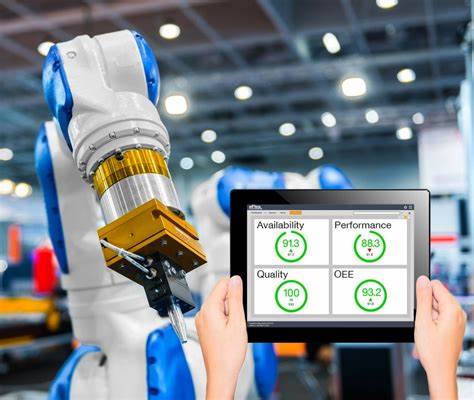
Introduction
Manufacturing engineering is an ever-evolving field that is constantly adapting to technological advances, social needs, and environmental concerns. As we enter a new era, the future of manufacturing engineering promises to revolutionize industries and shape the way products are designed, manufactured, and delivered. This article explores the key trends and innovations that will shape the future of manufacturing engineering, with a focus on sustainability and efficiency.
Smart Manufacturing and Industry 4.0
The future of manufacturing engineering lies in the application of Industry 4.0 and smart manufacturing principles. Smart manufacturing leverages technologies such as the Internet of Things (IoT), artificial intelligence (AI), big data analytics, and automation to create data-driven manufacturing systems connected together. By integrating machines, sensors, and processes, manufacturers can have real-time monitoring, predictive maintenance, and optimized production schedules. The result is reduced downtime, increased productivity, and more flexibility to adapt to changing market needs.
Additive manufacturing (3D printing)
Additive manufacturing, commonly known as 3D printing, has revolutionized many different industries and its role will only grow in the future. This technology enables the creation of complex and custom components, reducing material waste and production time. As technology advances, the range of materials and applications for 3D printing will expand, leading to increased adoption in a variety of industries ranging from aerospace and automotive to healthcare and pharmaceuticals. , consumer goods.
Sustainable Production
The future of manufacturing engineering will be significantly influenced by the urgent need for sustainability and environmental responsibility. Manufacturers will prioritize environmentally responsible practices, including energy-efficient processes, recycling initiatives, and reduced greenhouse gas emissions. Sustainability will become a focus in product design and material selection, leading to the development of eco-friendly products that match consumer preferences for green alternatives.
Advanced Materials and Nanotechnology
The future will see the integration of advanced materials and nanotechnology into manufacturing processes. These materials offer improved properties, such as superior strength, lightness, and conductivity, allowing for more efficient and durable products. Nanotechnology will continue to revolutionize manufacturing at the molecular level, with applications in medicine, electronics, and environmental protection.
Cooperation between man and machine
As automation and artificial intelligence become more prevalent, the future of manufacturing engineering will focus on human-machine collaboration. Instead of replacing workers, automation will increase their capabilities, allowing them to focus on more complex tasks that require creativity and problem-solving skills. The human-machine collaboration will lead to increased productivity, greater worker safety, and higher levels of job satisfaction.
Digital Twin Technology
Digital twin technology involves creating virtual copies of physical products or processes, allowing manufacturers to simulate and optimize performance before actual production. Using real-time sensor data, manufacturers can identify potential problems and make necessary adjustments, reducing the risk of errors and ensuring optimal product quality.
Supply chain transformation
The future of manufacturing engineering will bring significant changes to the traditional supply chain model. With advances in automation, AI-powered demand forecasting, and real-time inventory tracking, supply chains will become more efficient and responsive. This transformation will allow manufacturers to streamline logistics, reduce lead times, and adopt a more sustainable approach to production and distribution.
Conclusion
The future of manufacturing engineering is marked by innovation, sustainability, and extensive integration of cutting-edge technologies. Smart manufacturing, additive manufacturing, sustainable practices, advanced materials, human-machine collaboration, digital twin technology, and supply chain transformation will reshape industries, simultaneously A time that drives growth and efficiency like no other.
Manufacturers must embrace these advancements and adapt to the changing landscape to stay competitive in the global marketplace. As we move towards a more sustainable and interconnected future, manufacturing technology will continue to play an important role in shaping the world of production and consumption, ensuring a future of prosperity and responsible for the environment.